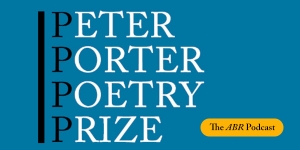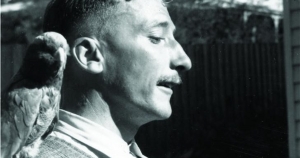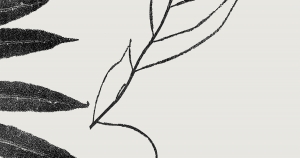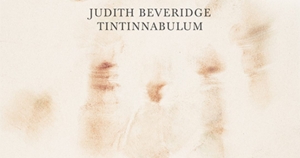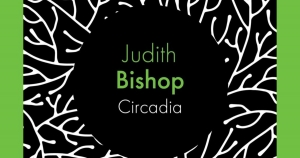Australian Poetry
This week on The ABR Podcast, Georgina Arnott discusses the dilemmas of writing an entry on Judith Wright for the Australian Dictionary of Biography. Georgina Arnott is the author of The Unknown Judith Wright, editor of Judith Wright: Selected Writings, and Assistant Editor at ABR. Listen to Georgina Arnott’s ‘“Shimmering multiple and multitude”: Keeping up with Judith Wright’, published in the January-February issue of ABR.
... (read more)This week on The ABR Podcast we feature the 2025 Peter Porter Prize shortlisted poems, as read by the five poets. Now in its twenty-first year, the Porter Prize is one of Australia’s most lucrative and respected poetry awards. It honours the life and work of the great Australian poet Peter Porter, a contributor to ABR for many years. All poets writing in English are eligible to enter.
... (read more)This week on The ABR Podcast, Toby Davidson marks the centenary of Francis Webb with an essay on the poet. Toby Davidson is the editor of Francis Webb’s Collected Poems and a senior lecturer at Macquarie University. Listen to Toby Davidson with ‘The gold standard: The centenary of Francis Webb’, published in the January-February issue of ABR.
... (read more)February 8 will mark the centenary of the birth of Francis Webb (1925-73). Many will ask ‘Francis who?’ as I did at the start of my PhD on Christian mysticism in Australian poetry, when Petra White told me, ‘You have to read Francis Webb.’ I soon found myself reading the 1969 edition of Webb’s Collected Poems in a Richmond café. It was a sturdy, well-thumbed Angus & Robertson hardback with a purple, pink, and white cover bearing a quote from British poet and critic Sir Herbert Read: ‘A poet whose power, maturity and universality are immediately evident.’ In his five-page preface, Read examined Webb’s debts to Robert Browning, Gerard Manley Hopkins, and Kenneth Slessor, before concluding:
... (read more)Tim Loveday reviews ‘Television: New poems’ by Kate Middleton
In 2014, while judging the Forward Prize for Poetry – one of poetry’s most prestigious awards – broadcaster and author Jeremy Paxman declared that ‘[p]oetry has connived its own irrelevance’. Paxman was talking about his desire for poetry ‘to engage with ordinary people’, to speak beyond the borders of sandstone institutions and for poets to become what Shelley called ‘the unacknowledged legislators’.
... (read more)David McCooey reviews ‘Tintinnabulum: New poems’ by Judith Beveridge
Bells are often associated with the sacred. A resonating bell marks out a space for reverence to inhabit. It calls for attention on the part of the devotee, for a shift in perception from the mundane to the sanctified. A ‘tintinnabulum’ is a small bell, and it is the name that the acclaimed poet Judith Beveridge has given to her latest collection of poems. ‘Tintinnabulation’ – the lingering sound of bells – is a word I first came across in the liner notes to Tabula Rasa, an album of music by the Estonian composer Arvo Pärt that explicitly brings together sound and sacredness.
... (read more)In Poetry’s Knowing Ignorance, Joseph Acquisto borrows a definition of poetry from Phillipe Jaccottet: ‘that key that you must always keep on losing’. Attempting to know its subject, poetry reveals that there is always more to know. But the French poet’s metaphor, for Acquisto, does not mean ‘simple contingency’. It suggests ‘a complex play of certainty and doubt … that actively resists coming to a conclusion’. We might say that poetry expresses the friction in human experience between time and permanence.
... (read more)John Hawke reviews ‘The Other Side of Daylight: New and selected poems’ by David Brooks
The final poem of this superb collection, ‘The Darkness’, identifies a primal scene. The young protagonist is a nascent poet, watching over the embers of a desert fire in early morning, awaiting the breath of a Pentecostal wind to rekindle the flames. It is a parable which emblematises the difficult task of transformation that is central to poetry itself: the boy contends with ‘fragments / that will not alchemise to song / that yield not / to the metaphrast’.
... (read more)David McCooey reviews ‘Ghosts of Paradise’ by Stephen Edgar
With a title like Ghosts of Paradise, it is no surprise that Stephen Edgar’s latest poetry collection is haunted by loss, mutability, and mortality – the great traditional themes of elegiac poetry. But Edgar’s poetry has long, if not always, been characteristically elegiac. In this new collection, Edgar’s first since winning the Prime Minister’s Award for poetry in 2021 (and his first for Pitt Street Poetry), the poems are haunted by the poet’s late parents, late fellow poets (especially W.B. Yeats, but also the Australian poet Robert Adamson, for whom there is an elegy), and ancient poetic forms, such as the sonnet. The collection also includes meditations on ageing, corpses, and photographs (including Roland Barthes’ ‘theory / That every photo is a memento mori’). An interest in the intertwining of memory, embodiment, and visual representation is powerfully realised in ‘Still Life’, in which the memory of a trip to Broken Hill is
... (read more)'Poems reawaken in us,’ writes James Longenbach, ‘the pleasure of the unintelligibility of the world.’ They do so via ‘mechanisms of self-resistance’: disjunctive strategies that work, for Longenbach, to ‘resist our intelligence almost successfully’. What ‘almost’ means here is, of course, a matter of taste – and style. Nonetheless, this Romantic mandate – that poems achieve clarity by integrating opacity – invites a question fundamental to poetics: how much resistance is too much, or not enough?
... (read more)

